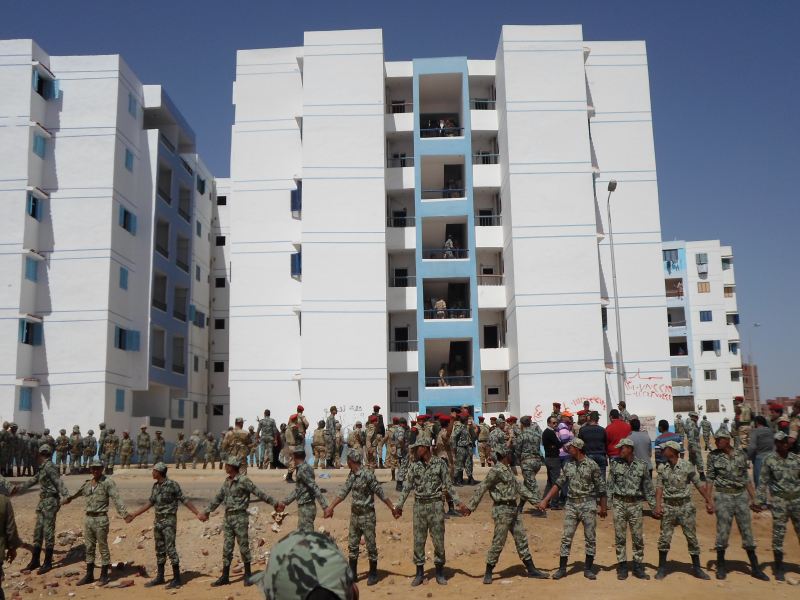By Marwa Al-A’asar
CAIRO: The Alexandria Criminal Court will announce on June 30 the verdict on the controversial case of 28-year-old Khalid Saeid who was allegedly beaten to death by two undercover policemen last June.
In a hearing on Saturday, the legal team representing Saeid’s family reiterated a previous demand to prosecute the defendants on charges of torture to death instead of cruel treatment.
“We are eying the maximum penalty against them of either a death sentence or 25 years in prison,” lawyer Raafat Nawar told Daily News Egypt.
Saeid was killed after being apprehended by policemen Awad Suleiman and Mahmoud Salah Mahmoud in June 6, 2010 at an internet café in Cleopatra district, Alexandria.
The two policemen were referred to the criminal court on charges of cruel treatment, torture and wrongful arrest. The first trial hearing was held on July 27.
The initial autopsy reports are believed to be riddled with contradictions, with the official report alleging that Saeid asphyxiated on a hashish wrap stuck in his throat and another saying the reason for his suffocation was a pack of marijuana. The two wraps were given different measurements as well.
During Saturday’s hearing, the alleged pack of drugs was presented by the defendants’ lawyers for the first time.
“We called for presenting the wrap several times before during the investigation and trial hearings,” Khalid Saeid’s uncle, Ali Qassem, told DNE.
“The size of the wrap they presented [yesterday inside a jar] were totally different from the previous descriptions,” Nawar said.
The defense team also refuted sacked chief coroner El-Sebaei Ahmed El-Sebaei earlier testimony and autopsy report especially that, according to Qassem, 24 complaints have been filed against him for covering up evidence in other cases.
The graphic posthumous photograph of Saeid’s badly disfigured face together with a picture of his smiling face before his death, galvanized public outrage after it appeared on the social networking site Facebook the same week of his death.
In a live interview last month with ON TV’s Akher Kalam talk show, El-Sebaei claimed that the deformities on Saeid’s face, including his severely injured lips and bruises around his eyes, were the results of the autopsy.
El-Sebaei also said that Saeid’s broken tooth was an old injury, a claim denied by his sister, Zahra Saeid.
The episode outraged human rights advocates and activists who called for sacking and prosecuting him for withholding and fabricating evidence. The prosecution has yet to investigate several alleged irregularities committed during his tenure.
The Facebook page, “We are all Khaled Saeid,” created following the incident, gathered over 1,282,478 at time of press.
The group was one of the driving forces that promoted the Egyptians uprising on Jan. 25, which started as a call for protests against police brutality, ironically held on Police Day. The protests eventually led to the ouster of president Hosni Mubarak 18 days later.
The Saeid family’s campaign for justice attracted huge public support and expressions of solidarity from public figures like opposition leader and former IAEA chief Mohamed ElBaradei and actor Khaled Abol-Naga, also a UNICEF Goodwill Ambassador.
Most recently, a US State Department report criticized the status of human rights during the Mubarak era.
“Police, security personnel, and prison guards often tortured and abused prisoners and detainees, sometimes in cases of detentions under the Emergency Law [active since 1981], which authorizes incommunicado detention indefinitely, subject to a judge’s ruling,” the report said.
The report added that the Egyptian government rarely held security officials accountable and that they often operated with impunity.


